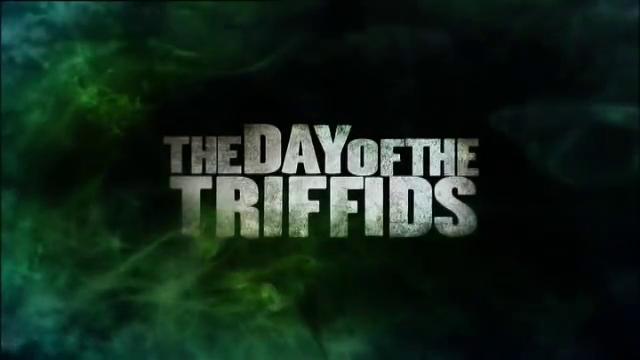
#514 – The Day of the Triffids (2009)
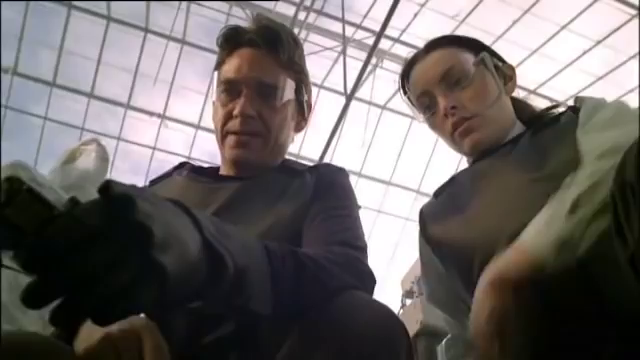

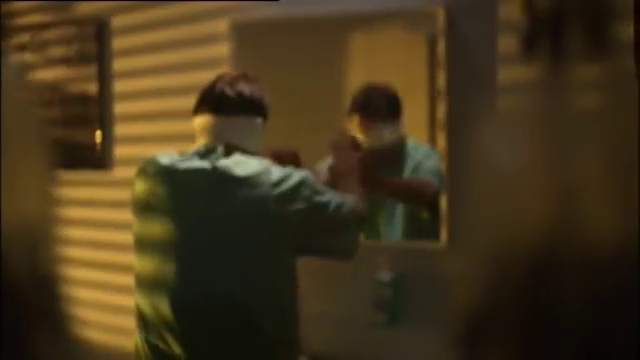
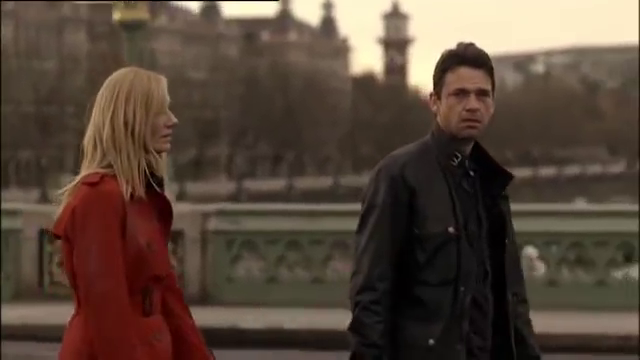
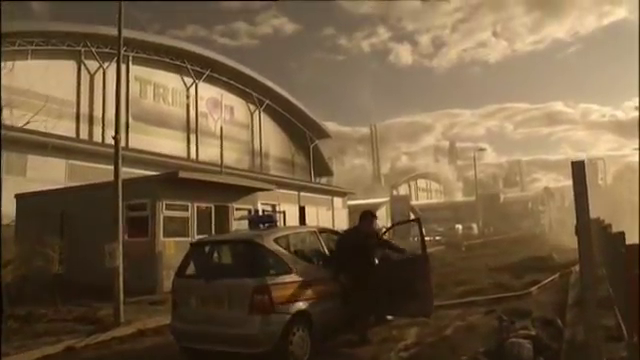

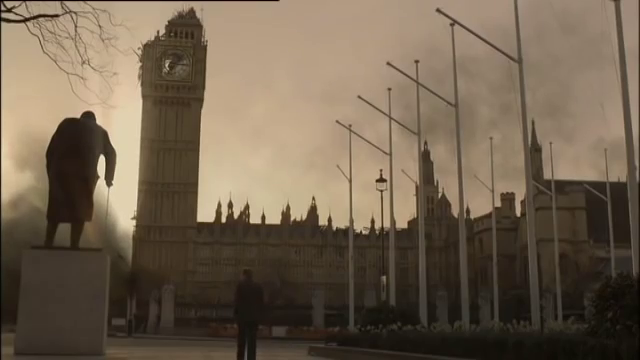
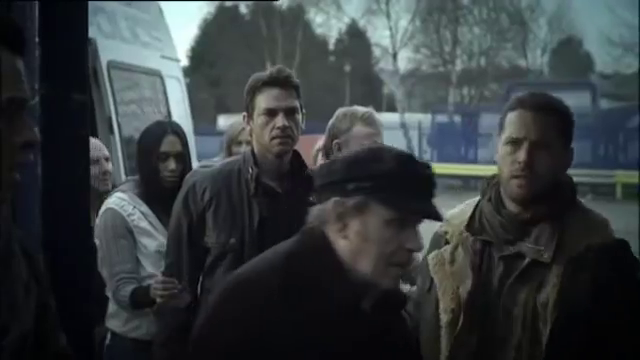
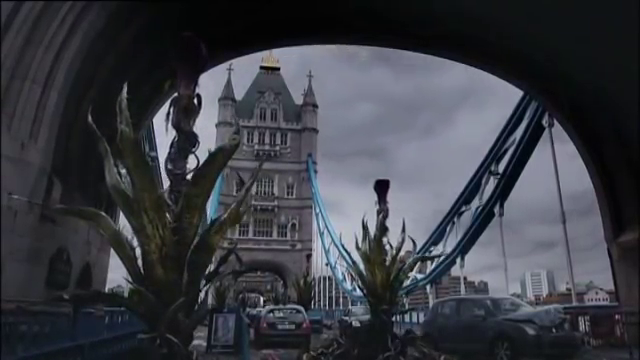
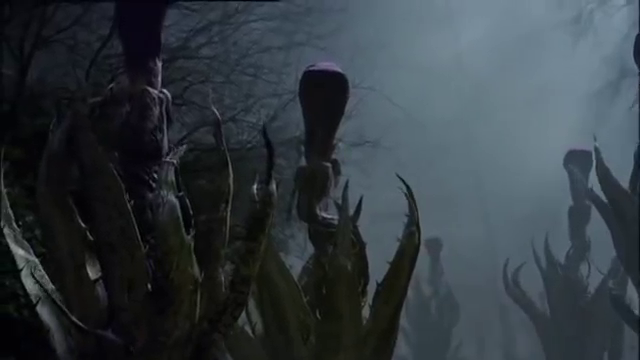
The Day of the Triffids (2009)
Film review #514
Director: Nick Copus
SYNOPSIS: A solar flare visible across the world has the effect of making everyone blind, leading to the collapse of society and government. This also has the consequence of releasing the Triffids, man-eating, mobile, plants into the world after their containment facilities fail. Bill Masen, a scientist who studies the triffids, avoids being blinded by the flare due to having an eye operation, and awakens to find he is one of only a few people still able to see. Bill navigates the remains of civilisation, teaming up with broadcaster Jo Playton to try and survive this new world, and also to stop the triffids from feeding on the sightless population…
THOUGHTS/ANALYSIS: The Day of the Triffids is a 2009 two-part TV series, based on the 1951 novel of the same name by John Wyndham. The plot of the film is updated from it’s origins in the 1950s, making the triffids, a race of man-eating plants that can move, the answer to global warming through the oil they produce as an energy source (the original novel was similar, but didn’t have the global warming angle). Bill Masen, a scientist working with the triffids, is attacked by them and has to have an eye operation to save his sight. Meanwhile, a solar flare that is visible worldwide causes the vast majority of people to lose their sight. Bill, having his eyes bandaged, is one of the fortunate ones, and unwraps his bandages to find society collapsed and everyone around him stumbling around blind. The plot of the series is more closer in many respects to the original novel than the 1962 film, and the changes it makes to bring it up to date fit in well. One of the main issues I have with the story is the unrelated events of the solar flare (meteor shower in the original) and the release of the triffids. Given that both cause blindness, it makes it seem like there is some connection between the two, whereas apparently it is just coincidence. The 1962 suggested a link between the two (that the triffids came to Earth by a meteor), but no such connection here. I’m not sure how convincing it is either that so many people went blind, when apparently you could avoid it simply by having your eyes covered, or being underground (such as Jo in the London underground), surely that would leave a lot more people sighted? Nevertheless, most of the main plot points from the book are there, but slightly tweaked to make a more conventional flowing narrative. The original novel was very much a post-apocalyptic survival story, whereas this adaptation fits the characters and story into more conventional film roles, for example, separating characters into specific scenes and settings, and having an overarching villain. The series flows fine enough, but there’s a point in the middle where things feel a bit without purpose and lost, and has no idea what to do with the characters.
The characters themselves have likewise had a few changes to reflect the more modern setting, and the serial format. Bill Masen is a fairly unremarkable lead, but that’s okay, because the story is more interesting when it focuses on the world rather than the characters. Bill’s character is expanded by introducing a personal relationship with the triffids, due to his parents being researchers that studied triffids, and his Mother being killed by one. It is an element that comes into play more in the latter half of the film when Bill meets his Father, but it all feels very unoriginal. There’s also this strange recurring flashback from when Bill was a child and his eyesight was saved after a triffid attack by a shaman and a mask of some sort, but I didn’t really get the significance of it, and it really only pays off in the final minutes for an insignificant bit. Torrence, played by Eddie Izzard, takes up the villain role, and he is set up as a man who will do whatever it takes to survive (he mostly replaces Beadley from the original novel). His quirky, whimsy personality does feel a bit out of place in a post-apocalyptic setting, and I don’t think the series needs an overarching villain in a world where the world itself is the biggest enemy, along with the triffids, of course. One thing that is consistently evident is that nobody seems to know how to write women and children: Jo is the female lead, but her dialogue and everything she does just feels so ineffectual that it’s almost like she isn’t there for the most part. When the young girl Susan and her sister turn up later on too, their characters just don’t go anywhere or develop a bond with the others. There is a severe lack of coherence and relationship building between the characters which is overlooked in the streamlining of the plot into a two-part series.
Production-wise, the series looks good, with plenty of scenes that show off a ruined London, and plenty of extras that populate the chaotic streets. The triffids themselves are CG monsters that are mostly shown obscured in shadows or partly obscured, but I think that’s probably for the best, as there’s no way to make CG walking plants look completely threatening. There’s a good sense of scale, and some competent production, but The Day of the Triffids has a certain blandness borne from some streamlining elements of the plot to fit the series format, and an inability to write some of the characters to be in anyway significant. It’s watchable, mildly entertaining, but yes…bland.

